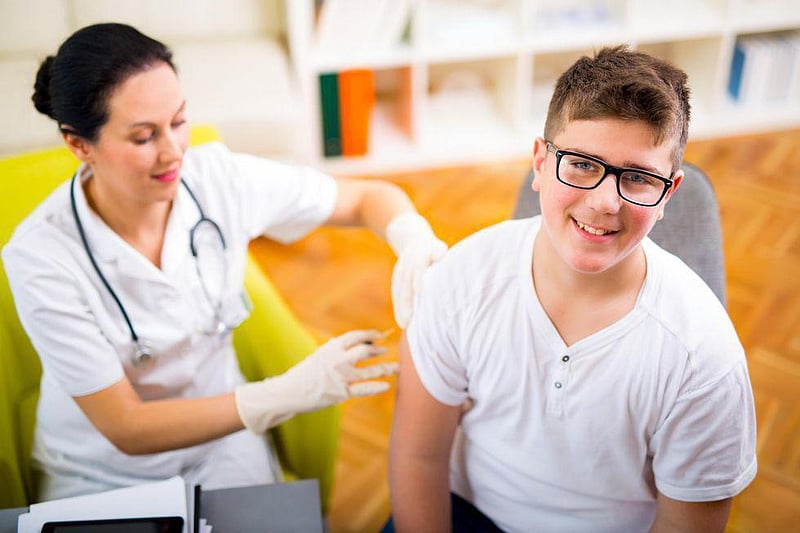Monday - Friday 8:30am to 7:00pm
Saturday - 8:30am to 4:00pm
Sunday - Closed
Get Healthy!

- Robert Preidt
- Posted December 23, 2021
HPV Vaccination Could Rid U.S. of Most Mouth, Throat Cancers in Men
How do you prevent nearly 1 million cases of mouth and throat cancers in American men in this century? Find a way to reach an 80% HPV vaccination rate among adolescents, a new study suggests.
HPV vaccination protects against the human papillomavirus (HPV), which is the leading cause of cancer in the oropharynx. It's the middle part of the throat, behind the mouth. About 16,000 cases of oropharyngeal cancer are diagnosed in the United States each year, and more than 70% are caused by HPV, the study authors noted.
The vaccine prevents nearly all cancer-causing HPV infections, and the Advisory Committee on Human Immunization Practices recommends HPV vaccination at 11 to 12 years of age, and catch-up vaccinations through age 26.
"We are in an era of declining cancer incidence and mortality. Oropharyngeal cancer is one of only a few cancers that is rising rapidly," said study lead author Haluk Damgacioglu. He is a postdoctoral research fellow at the University of Texas Health Science Center at Houston.
The Healthy People program of the U.S. Department of Health and Human Services has set an 80% target for the HPV vaccination program by 2030, but only 54% of adolescents and only 21% of young adults in the United States were adequately vaccinated as of 2019.
Meeting the 80% target will not be easy, the researchers noted. Last year, during the peak of the pandemic, HPV vaccination rates plummeted by more than half and have continued to remain lower than in prior years. That fact alone could lead to as many as 6,200 additional cases of male mouth/throat cancer through the century, they added.
To assess how the 80% target would affect male mouth and throat cancer numbers, the UTHealth researchers created a computer simulation.
"Achievement of the 80% goal by 2025 and maintaining it could lead to the prevention of 934,000 oropharyngeal cancers and could lead to its elimination by late 2070s; whereas, maintaining the current vaccination rate of 54% could prevent 792,000 cases but oropharyngeal cancer elimination will not occur by the end of the century," said senior study author Ashish Deshmukh, associate director of the Center for Health Services Research at the UTHealth School of Public Health.
The study was published online Dec. 15 in The Lancet Regional Health--Americas journal.
Study co-author Gary Clifford is deputy head of the Branch of Early Detection, Prevention and Infections at the World Health Organization's International Agency for Research of Cancer. "This work is a clear and important reminder that to prevent avoidable suffering and death from HPV-related cancer in our future, we must act by protecting adolescents in our present," Clifford said in a university news release.
More information
The American Cancer Society has more on HPV vaccination and cancer prevention.
SOURCE: University of Texas Health Science Center at Houston, news release, Dec. 15, 2021
